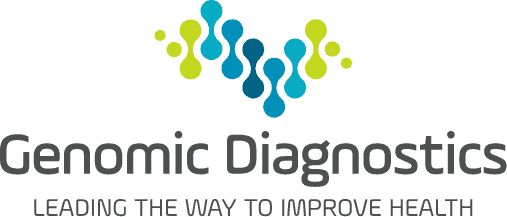Practitioners – FAQs
Genetic testing is a complex and expanding field. It is growing rapidly and more diagnostic tests are available each year.
We have put together some brief information on some of the questions we are frequently asked, but if there is more you would like to know please do not hesitate to contact us. Whilst we do provide patient information, we also recommend they speak with you on all matters relating to their health.

Genetic tests for inherited conditions fall in to two categories: Predictive Genetic Testing which is offered to healthy, unaffected/asymptomatic individuals to predict a future risk of genetic disease. For example, a patient with a family history of breast cancer, who is unaffected, but concerned about personal future risk of breast cancer. Before requesting these tests, the ordering practitioner should ensure the patient has received genetic counselling and given informed consent to ensure they are familiar with the implications of results for themselves and other family members.
The second category is Diagnostic Genetic Testing which is offered to affected individuals when a genetic contributor to their condition is suspected. For example, haemochromatosis genetic testing in the setting of a raised ferritin, or genetic testing in patient who is affected with cancer to determine treatment or recurrence risk. While genetic counselling isn’t necessary before the test, in some cases (germline testing) genetic counselling may be appropriate after the test.
The Medicare Benefits Schedule (MBS) restricts some tests to specialists due to clinical or ethical complexity. In order for patients to be eligible for an MBS rebate, specific tests may need to be requested by (or on behalf of) a specialist physician.
NATA – or the National Association of Testing Authorities is the sole accrediting body in Australia for Medical and other laboratories. Labs in Australia must meet strict standards (International and Australian) regarding all aspects of the request-test-report cycle. Accreditation provides assurance that the laboratory is working within the regulatory framework and adheres to appropriate Quality requirements. In real terms, this means providing reliable, reproducible results by appropriately qualified staff for clinically valid tests where all aspects of the test are traceable.
We believe in patient and practitioner choice, and do not recommend any particular genetic counselling service. However, we can provide you with a list of appropriately qualified practitioners who offer genetic counselling services. Please call our Customer Care Team on 1800 822 999 for further information.
Many genetic tests are rare, and testing for them is only available in specific reference laboratories in Australia or abroad. If you are enquiring about a test which is not listed on our website, please contact us on 1800 822 999 or via [email protected] with your request.
The majority of genetic tests provided across Australia are currently not covered by Medicare. In some instances, those that are rebated by Medicare may have specific criteria restricting Medicare eligibility. When a Medicare rebate is not available, or when eligibility criteria are not met, patients will need to pay for these tests. We are committed to affordable, accessible healthcare. As part of this commitment we constantly work with the Government to address this issue and try to minimise these costs to patients wherever possible.
We’ve selected a number of useful links to credible sources on our News & Resources page. Please visit them for further information.
Leading the way to improved health
results in the shortest turnaround time.



